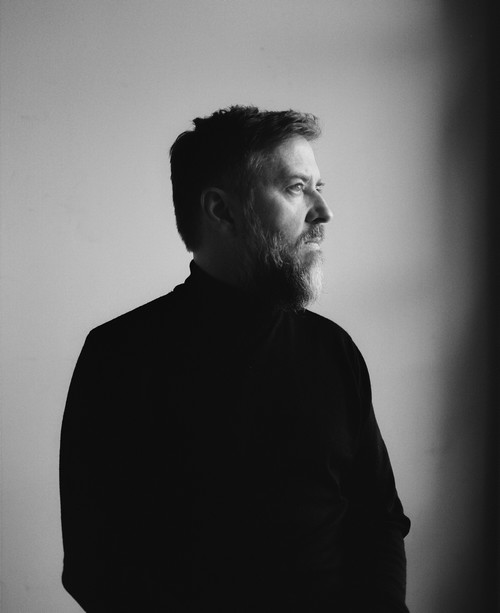Intervista esclusiva ad Atli Örvarsson
La musica per immagini è pura alchimia - Intervista esclusiva ad Atli Örvarsson
Sono tornati in sala i folli Samuel L. Jackson, Ryan Reynolds e Salma Hayek con il seguito dell’adrenalinico e spassoso action movie Come ti ammazzo il bodyguard, risalente al 2017. La colonna sonora dell’islandese, ma residente a Los Angeles, Atli Örvarsson, come nel caso del primo film, è una scarica insolente e superlativa di composizioni sinfo-funky-blues-soul come la tradizione poliziesca anni ’70 imponeva; quella che ci ha regalato score cult come quelle di Lalo Schifrin per il Clint-Dirty Harry-Eastwood e lo Shaft da Oscar di Isaac Hayes. Abbiamo incontrato Örvarsson e parlato non solo del summenzionato sequel, anche della sua lunga carriera, dagli esordi nel 2000, di autore di musica per film e serie tv, tra i quali Babylon A.D. e i vari Chicago Fire, Chicago P.D. e Chicago Med. Ed è stata una chiacchierata illuminante!
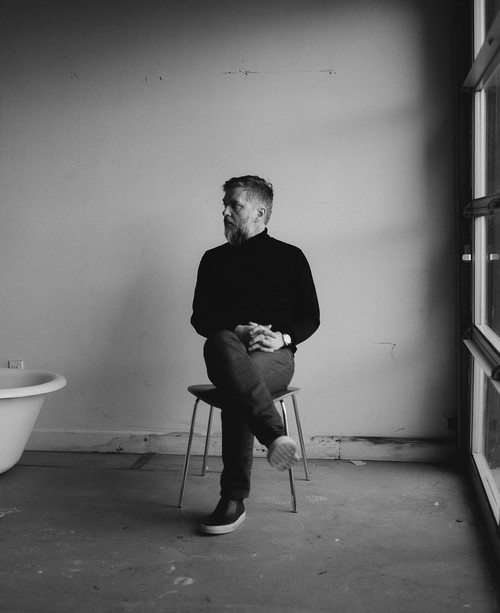
Colonne Sonore: Quanto le sue origini islandesi, i suoi studi musicali e l’esperienza nella band arcinota nel suo Paese natio, Sálin hans Jóns míns, hanno influito sul suo stile compositivo?
Atli Örvarsson: Credo che tutti i compositori, e probabilmente gli artisti in generale, siano la somma di tutte le loro esperienze, quindi sono sicuro che tutte queste cose hanno una grande influenza sulle mie composizioni! Crescendo ho avuto l’opportunità di suonare molti tipi diversi di musica, dalla classica al jazz al pop/rock, motivo per cui i miei spartiti sono piuttosto vari, ma forse c’è una sorta di filo islandese che li lega tutti insieme.
CS: Quali sono le sue fonti ispirative sonore sia classiche che moderne?
AÖ: Cerco costantemente di trovare nuove fonti di ispirazione nella mia scrittura. Viene dedicato molto tempo alla creazione di nuovi suoni elettronici, ad esempio con la mia collezione di sintetizzatori e pedali per effetti, e dal lato più tradizionale si tratta di trovare nuove trame usando strumenti acustici in un modo insolito. Sono molto fortunato ad avere un’orchestra con cui lavoro in Islanda, la Sinfonia Nord, che è molto interessata a sperimentare nuovi suoni e metodi di esecuzione.
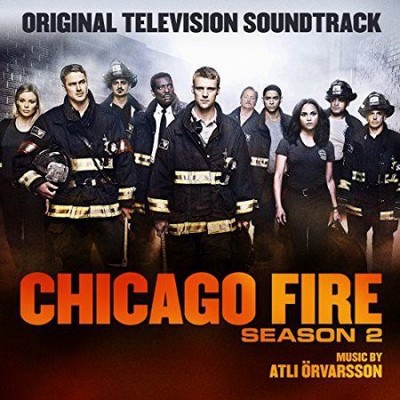
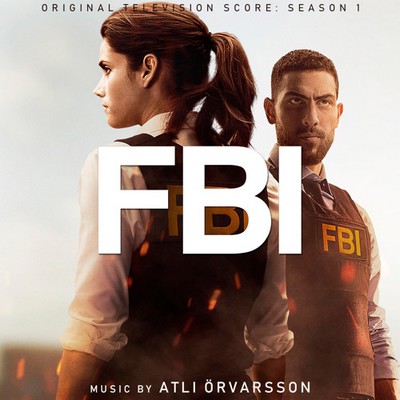
CS: Nel suo carnet di scrittura per le immagini ha diversificate esperienze nella serialità, soprattutto in quella continuativa e di successo quali le serie NBC Chicago Fire, Chicago P.D. e Chicago Med, FBI e FBI: Most Wanted, Law & Order: Los Angeles e Law & Order True Crime, Dragnet. Ha ottenuto molte vittorie agli ASCAP Film and Television Music Awards per queste partiture. Si trova più a suo agio nella complessità compositiva ultra repentina e ininterrotta delle serie televisive o in quella cinematografica con budget differenti, anche voluminosi, e tempi più dilatati?
AÖ: Non credo di essere più a mio agio in uno rispetto all’altro, ma pongono sfide diverse. Mi piace il tempo extra che hai spesso quando scrivi una colonna sonora, ma d’altra parte, a volte è liberatorio avere tempi di risposta molto rapidi in cui devi semplicemente fidarti delle tue idee e lavorare molto velocemente.
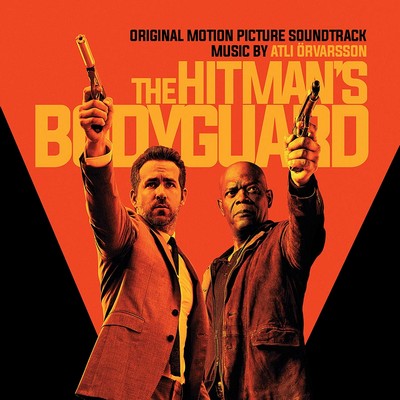
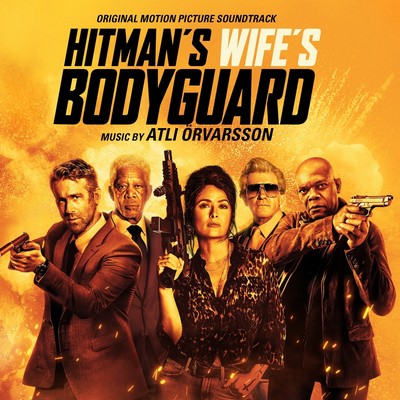
CS: Parlando del capostipite action/irriverente Come ti ammazzo il bodyguard (The Hitman’s Bodyguard, 2017) e del sequel, da poco approdato in sala, Come ti ammazzo il bodyguard 2 (Hitman’s Wife’s Bodyguard, 2021), sempre col medesimo straordinario cast, Samuel L. Jackson, Ryan Reynolds e Salma Hayek, si sarebbe aspettato un tale successo al botteghino da crearne un seguito? Si è divertito, come nel primo film, nel creare una partitura funky-soul-gospel simil “blaxploitation” anni ’70, dinamica e sfottente come il personaggio interpretato da Jackson?
AÖ: Mi sono davvero divertito a comporre le score di entrambi questi film e penso che tu abbia colpito nel segno con la parola irriverente! Ad essere onesti, non avevo mai pensato alla connessione con l’era della blaxploitation, ma ora che me lo fai notare, ha davvero perfettamente senso. La prima volta che ho avuto un incontro con il regista di questi film, Patrick Hughes, ci siamo seduti con una bottiglia di vino e abbiamo ascoltato molti dischi di blues americano e si potrebbe dire che la musica per il personaggio di Samuel Jackson viene davvero da quella conversazione. C’è anche un riferimento ad alcune precedenti musiche di James Bond in quanto sembra che il personaggio di Ryan Reynolds voglia essere oltre la perfezione umana. In un modo o nell’altro è stato davvero divertente e non mi ha sorpreso che il film originale sia andato così bene da generare un sequel.
CS: Nel primo score di The Hitman’s Bodyguard c’è un pezzo adrenalinico dal titolo “Amsterdam Chase” che mescola perfettamente sonorità assai moderne ad un sound molto anni settanta dei succitati polizieschi neri e di quelli alla Ispettore Callaghan. Tal brano è attribuito ad un certo Dmitri Golovko. Non è che per caso è Lei che si cela dietro questo nome? E quanto ci vuole a scrivere e registrare un pezzo del genere?
AÖ: Dimitri Golovko è un compositore con cui Patrick Hughes aveva lavorato in passato e durante il montaggio del film aveva usato questo pezzo come “temporaneo”. Sembrava così giusto per la scena che ho semplicemente suggerito di usarlo in modo che fosse il lavoro di Dimitri.
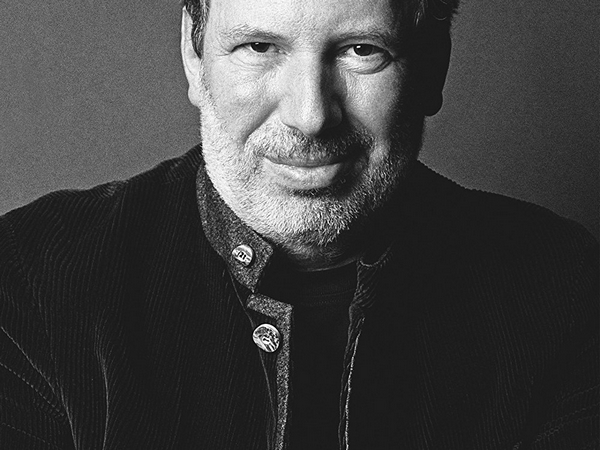
CS: E’ stato legato artisticamente, agli inizi di carriera nella Film Music, alla MediaVentures di Hans Zimmer & CO. con il quale ha collaborato in partiture quali Iron Man, Frost / Nixon, Pirates Of The Caribbean – At World’s End o The Simpson Movie. Cosa ricorda in special modo di quei primi anni come additional composer e assistente?
AÖ: Penso a quegli anni con grande affetto. Sono stati molto impegnativi e allo stesso tempo eccezionalmente istruttivi. Hans è un’incredibile mente musicale e un filmmaker brillante, quindi non puoi davvero trovare un mentore migliore.
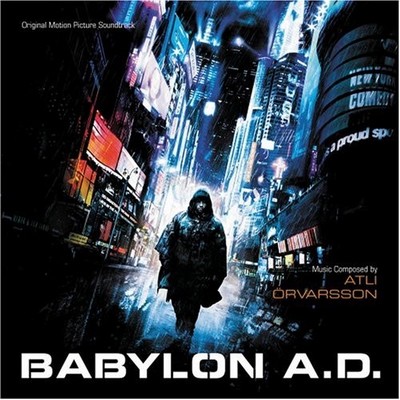
CS: Nel 2008 ha scritto le musiche corali e poderose per il fantascientifico action Babylon A.D. con Vin Diesel diretto da Mathieu Kassovitz, nominate come “Scoperta dell’anno” ai World Soundtrack Awards. Nella nostra recensione dell’epoca riportammo tale affermazione: “Lo score composto per Babylon A.D. risulta fin dai primi istanti molto affascinante, carico di atmosfere e presenze corali di notevole effetto, che proiettano l’ascoltatore in un mondo fantascientifico dal retrogusto drammatico e maestoso al tempo stesso.” Quanto si rivedi musicalmente in questa asserzione? E che ricordo le è rimasto della preparazione di questo score monumentale, tetro e dinamicamente deflagrante e della scrittura del tema portante coralmente teatrale e melanconico “Aurora’s Theme (Agnus Dei)”?
AÖ: Apprezzo molto le parole cortesi che hai scritto per questo score e sono felice della descrizione perché è esattamente quello che speravo di ottenere. Babylon AD è stato un film molto divertente da comporre in quanto abbraccia temi così ampi e ha un tocco un po' biblico nella sua distopia. Il tema di Aurora fu uno di quei brani musicali che mi arrivarono molto velocemente, come un telegramma e mi sembrò che usare una voce femminile molto pura avrebbe funzionato perfettamente con il personaggio di Aurora. Ho chiesto a mia sorella þórhildur di fare le parti vocali e fu la cantante perfetta per questo!
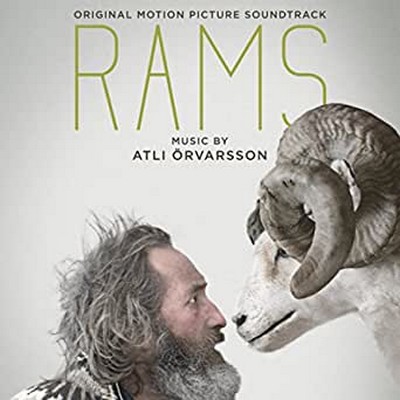
CS: Quanto è importante nella sua filmografia il pluripremiato film Rams - Storia di due fratelli e otto pecore per il quale hai ottenuto la candidatura per le migliori musiche agli HARPA Nordic Film Composers Award e agli Edda Awards, Iceland?
AÖ: Rams è stato estremamente importante per me in molti modi. Forse soprattutto perché stavo iniziando a tornare alle mie radici islandesi dopo aver vissuto a Los Angeles per quasi 20 anni. La prima inquadratura del film è quella di una casa colonica, che apparteneva alla mia famiglia e mia madre è letteralmente nata lì, quindi mi è molto vicina a livello personale. Nella partitura suonavo anche una fisarmonica Borsini che avevo regalato a mio padre poco prima che morisse, quindi c’era di nuovo un legame molto intimo. Ovviamente il film è poi diventato il film islandese più premiato fino ad oggi, incluso il premio Un Certain Regard al Festival di Cannes, quindi è stato un progetto meraviglioso sotto ogni punto di vista.
CS: Una nostra ultima classica domanda: che significato attribuisce alla Musica per Immagini?
AÖ: La prima parola che mi viene in mente è alchimia. C’è una magia che accade quando la musica viene applicata con successo alle immagini che è persino maggiore della somma delle sue parti.
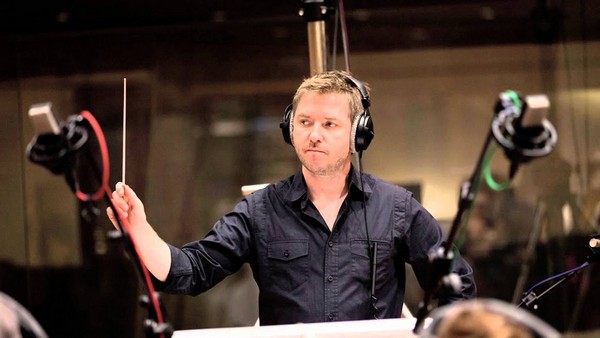
Un grazie particolare ad Adrianna Perez, pubblicista presso White Bear PR, per averci fatto intervistare il Maestro ATLI ÖRVARSSON, che ringraziamo per la sua grande cortesia e disponibilità.
Foto di Alex Soutré
English Version:
Colonne Sonore: How much have your Icelandic origins, your musical studies and experience in the well-known band in your native country, Sálin hans Jóns míns, influenced your compositional style?
I believe that all composers, and probably artists in general, are the sum of all their experiences, so I'm sure that all of these things are a big influence on my compositions! I had the opportunity to play a lot of different kinds of music growing up, from classical to jazz to pop/rock, which is probably why my scores are quite varied but perhaps there is some sort of an Icelandic thread tying them all together.
CS: What are your classical and modern sources of sound inspiration?
I'm constantly trying to find new sources of inspiration in my writing. A lot of time goes into creating new electronic sounds, e.g. with my collection of synthesizers and effects pedals, and on the more traditional side it's about finding new textures using acoustic instruments in an unusual way. I'm very lucky to have an orchestra I work with in Iceland, Sinfonia Nord, who are very much into experimenting with new sounds and playing methods.
CS: In your book of writing for images you have various experiences in seriality, especially in the continuous and successful series such as the NBC series Chicago Fire, Chicago P.D. and Chicago Med, FBI and FBI: Most Wanted, Law & Order: Los Angeles and Law & Order True Crime, Dragnet. Are you more at ease in the ultra-sudden and uninterrupted compositional complexity of television series or in the cinematographic one with different budgets, even voluminous ones, and more extended times?
I don't think I'm more at ease in one over the other, but they do pose different challenges. I do enjoy the extra time you often have when writing a film score but on the other hand, it's sometimes liberating to have a very fast turnaround time where you simply have to trust your ideas and work very fast.
CS: Speaking of the action / irreverent progenitor The Hitman's Bodyguard (2017) and the recently released sequel Hitman's Wife's Bodyguard (2021), always with the same extraordinary cast, Samuel L. Jackson, Ryan Reynolds and Salma Hayek, would you have expected such a success at the box office to create a following? Did you have fun, as in the first film, in creating a funky-soul-gospel score similar to the "blaxploitation" of the 70s, dynamic and mocking like the character played by Jackson?
I really enjoyed scoring both of these films and I think you hit the nail on the head with the word irreverent! To be honest, I had never thought of the connection with the blaxploitation era but now that you mention it, it really makes perfect sense. The first time I had a meeting with the director of these films, Patrick Hughes, we sat down with a bottle of wine and listened to a lot of American blues records and you could say that music for Samuel Jackson's character really comes out of that conversation. There's also a reference to some earlier James Bond music as it feels that Ryan Reynolds' character wants to be beyond humanly perfect. One way or another it's been really good fun and I was not surprised that the original film did so well that it spawned a sequel.
CS: In the first score of The Hitman's Bodyguard there is an adrenaline-pumping piece entitled "Amsterdam Chase" that perfectly mixes very modern sounds with a very seventies sound of the aforementioned black cops and those of Inspector Callahan. This passage is attributed to a certain Dmitri Golovko. Isn't it by chance that she is behind this name? And how long does it take to write and record such a piece?
Dimitri Golovko is a composer who Patrick Hughes had worked with in the past and while editing the film had been using this piece as "temp." It felt so right for the scene that I simply suggested that we use it so that is Dimitri's work.
CS: You were artistically linked, at the beginning of his career in Film Music, to the MediaVentures of Hans Zimmer & CO. with whom he has collaborated on scores such as Iron Man, Frost / Nixon, Pirates Of The Caribbean - At World 's End or The Simpson Movie. What do you especially remember from those early years as an additional composer and assistant?
I think of these years with great fondness. They were very challenging and at the same time incredibly educational. Hans is an incredible musical mind and a brilliant filmmaker, so you can't really find a better mentor.
CS: In 2008 you wrote the choral and powerful music for the science fiction action Babylon A.D. with Vin Diesel directed by Mathieu Kassovitz, nominated as "Discovery of the Year" at the World Soundtrack Awards. In our review of the time we reported this statement: "The score composed for Babylon A.D. from the very first moments it is very fascinating, full of atmospheres and choral presences of considerable effect, which project the listener into a sci-fi world with a dramatic and majestic aftertaste at the same time." How much do you review musically in this statement? And what memories do you have of the preparation of this monumental, bleak and dynamically explosive score and of the writing of the choral theatrical and melancholic theme "Aurora's Theme (Agnus Dei)"?
I really appreciate the kind words you wrote for this score and am delighted by the description because it is exactly what I was hoping to achieve. Babylon A.D. was a very fun film to score as it touches on such broad themes and has a bit of a biblical feel to it in its dystopia. Aurora's theme was one of those pieces of music that just came to me very quickly, like a telegram and it felt like using a very pure female voice would work perfectly with the character of Aurora. I had my sister þórhildur do the vocal parts and she was the perfect singer for it!
CS: How important is the award-winning film Rams for which you were nominated for Best Music at the HARPA Nordic Film Composers Award and Edda Awards, Iceland, in his filmography?
Rams was extremely important for me in many ways. Perhaps mostly because I was starting to move more back towards my Icelandic roots after living in LA for almost 20 years. The first shot in the movie is of a farm house, which used to belong to my family and my mother was literally born there, so it is very close to me on a personal level. In the score, I also played a Borsini accordion which I had gotten for my father shortly before he passed away so there again was a very intimate connection. Of course the film then became the most award-winning Icelandic film to date, including the Un Certain Regard prize at the Cannes festival, so it was a wonderful project in every way.
CS: One of our last classic question: what meaning do you attribute to Music for Images?
The first word that comes to my mind is alchemy. There is some magic that happens when music is successfully applied to images that's even greater than the sum of its parts.
